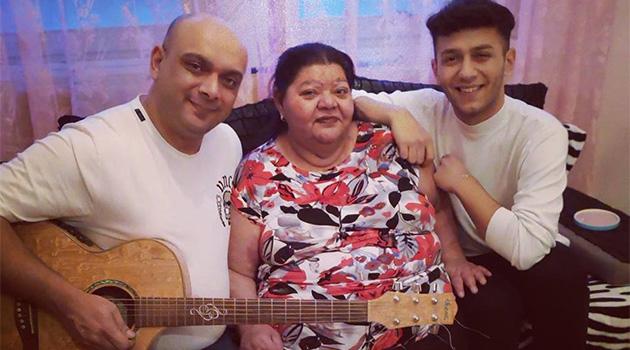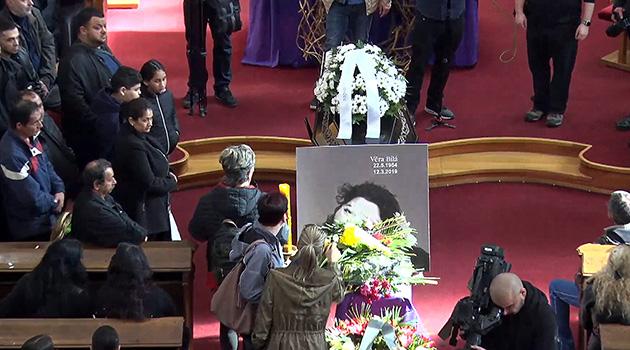Richard Samko's message to the late singer Věra Bílá: Me, nikda nazabisterav, palikerav tumege

The songs of Věra Bílá and the Kale band were a reflection of real life. They had melodies, messages, and above all, they were sung in beautiful Romanes.
The mother is, in the Romani concept of life, the most important person in the family, and Věra Bílá sang about the mother figure more than once: Sako rati pre blačkica dikhav, a pre tute mamo duminav – “A girl sits by a window remembering her mother and thinking about life.” The desire for a love partner is reflected in the songs as well: Pašo paňori čajori romani, me la igen kamav – A girl is sitting near the water and I long for her.
The journey to finding love is not always a direct one, and that is sung about too: Ara more, ma av tu kiamnde, bo me kali som – “Man, go away! Don’t come here, I’m not for you, I’m black.”
The man in the song, however, won’t listen and the day comes when a postman heads to the house: O paštáris avel, telegramos anel and the letter reads Ma dará me avava, užar čhaje me pal tute avava – “Don’t be afraid, I’m coming for you. Wait for me, my darling, and I’ll come for you.”
Věra Bílá was certainly pleased to be given flowers and sings about it – Loli ruža tuke dá andro bala me thová, tuke, tuke me davá – “I’m giving you a red rose, I’m putting it in your hair. Only to you, only to you am I giving it.”
There is no lack of the real Romani character in her lyrics and moments such as A me tuke naphenave, a me tuke denašava a me tuha nadživava, more joooj me tut nakamav – basically saying “I don’t want to live with you anymore”. For Romani people such words do not always mean the relationship is definitively at an end, and Věra Bílá and Kale knew that. They believed there must always be a time to say Te me pijav lačes horzné, te angla mande mire berša džal, te av tu pale pro khamiben – “Let’s pour a glass of new wine, let’s realize how fast life runs away, and let’s fight for our love again.”
While men also have an irreplaceable role to play in Romani life, they don’t often listen to the women around them, which may be why Věra Bílá sang Ma dža nikaj, bo pes maren, šun man more, madža nikaj – in which a woman advises a man “Don’t go anywhere, there’s nothing but discord all around out there”. The Romani man frequently does not heed this warning and asserts Sar me khere ava džino love anava – “When I come home I will bring a lot of money.”
That’s often what happens, too. When there is love, then the lyrics to sing are Sako dives me bašavava la pheňke me gilava, lači šukar gili roman – “We play music every day and now we’ll sing her favorite Romani song to our sister.” There is drinking, singing, dancing, but also crying, and once again the figure of the mother is frequently mentioned – E Daj nasvali so kerava, o jilo man palate dukhal – “Mama is sick and dying, what will I do?”
Věra Bíla’s heart was full of enormous pain after her beloved son and her husband passed away. For a long 15 years, she withdrew to the sidelines, but then “D-day” came and she once again shouted out to the world Mek som adaj, so keren Romale. Nikda pre mam nazabisteren – “I’m still here, Romale, what are you going to do about it? You will never forget me!”
She somewhat suspected this would be her last song. Just a couple of days before her first newly-scheduled performance, Věra Bíla confided to her loved ones that she would not live to take the stage.
Me, nikda nazabisterav, palikerav tumege.
